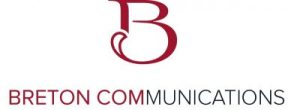By JoAnne Sommers
 The recent federal budget contains several pieces of good news for the small business community but important battles still loom on the horizon. That’s the verdict of the Canadian Federation of Independent Business (CFIB), which represents more than 108,000 owners of small- and medium-sized businesses across the country.
The recent federal budget contains several pieces of good news for the small business community but important battles still loom on the horizon. That’s the verdict of the Canadian Federation of Independent Business (CFIB), which represents more than 108,000 owners of small- and medium-sized businesses across the country.
“This is a pretty good budget from a small business perspective,” says Dan Kelly, CFIB’s senior vice president, legislative affairs. “It contains a couple of important measures, including an employment insurance (EI) Hiring Credit for Small Business, which was our top budget priority.”
The program will apply only to firms that paid less than $10,000 in EI premiums in 2010. That means the company would have to have less than $413,000 in EI assessable payroll to qualify.
If such a company increases its EI bill in 2011 for any reason (such as adding a new position or raising salaries), it will receive a refund of the EI increase to a maximum of $1,000. “For example,” says Kelly, “if an employer creates an additional job at a salary of $40,000 annually, they will get a refund of their entire additional EI bill (approximately $1,000).”
Since the federal budget forecasts rising EI premiums in each of the next three years (beginning with five cents per $100 in payroll in 2012), this credit will be a big help to small firms that want to grow their workforces, he adds.
“We pushed for this program to encourage companies to hire more people, give their employees more hours and expand their payrolls. It means that for a lot of people who expected an EI hike the impact will be reduced or eliminated.”
The second victory involves a commitment by the Canada Revenue Agency (CRA) to develop a system that provides written responses to small business inquiries. It comes after a CFIB report earlier this year that criticized the CRA’s customer service experience. In addition to difficulty connecting with agents CFIB’s assessment found that 21 per cent of inquiries resulted in an agent providing incorrect or incomplete information. If the business filed a return using the information and was subsequently audited, it could be held liable for the tax consequences arising from the error, because the business had nothing in writing to fall back on.
“Based on our report we lobbied government to ensure our members have access to written advice from CRA for their inquiries. The new budget stipulates that the e-filing system called MY BUSINESS ACCOUNT allows a company to ask questions via email to which the CRA will provide a written response. The responses will be stored, which will provide business people with the necessary support if a problem arises after the fact.”
Requiring CRA to provide written interpretation on tax inquiries when requested through CRA’s online window will bring a significant improvement in transparency and accountability, Kelly adds. “In addition, the measures to review penalty levels for information returns will be welcomed by firms struggling to meet government paperwork requirements.”
As a member of the government’s Red Tape Reduction Commission, CFIB also welcomes the budget’s commitment to continue BizPaL, which provides firms with one-window access to permits, licences and fees at all three levels of government.
In other good news Kelly cites the extension of the 50 per cent straight-line accelerated Capital Cost Allowance for manufacturing or processing machinery for another two years, as well as the fact that the federal deficit is dropping faster than expected.
“The budget notes an improvement in government finances and highlights several spending reduction measures. They are keeping to the plan to balance the books by 2015 and it looks very possible that this will happen in 2014, a year ahead of schedule. Still, there are very few measures in this budget to deal with the costs of the civil service – particularly pensions and retirement benefits. We will continue to lobby for a greater focus on spending restraint in the months ahead.”
CFIB also remains concerned that EI premiums are scheduled to rise annually between 2012 and 2014. “This comes after the government took $57 billion of EI surpluses and put it into general revenues, restoring only $2 billion to the EI program. That was inappropriate and we want that money replenished without business taxpayers having to cough up more money.”
Another concern is retirement income. “While CFIB welcomes the ongoing work to introduce Pooled Registered Pension Plans, we remain concerned that the budget notes that, ‘federal, provincial and territorial governments are continuing work on options for a modest enhancement to the Canada Pension Plan (CPP)’.
Kelly says his organization will lobby hard against any increase in CPP premiums. “CFIB members need to take seriously the potential of a future round of increases and we will continue our lobbying efforts in this area.”







